I am thrilled I completed and sent 90% of my elder care book to my editor!-just before leaving for my 2-week, 6-country Mediterranean Cruise.
I look forward to reviewing her comments when I return.
BTW, I am at JFK, awaiting my flight to Barcelona-now.
Monday, December 7, 2009
Tuesday, December 1, 2009
Ten Tell-tale Signs That Your Aging Parents Need Help
I noticed gradual changes in my (fiercely independent) parents’ decline each time I returned home to Chicago. Eventually, I realized I needed to pay closer attention to the not-so-obvious warning signs.
My parents had begun to sleep till 4PM, were eating leftovers older than me, and they were driving dangerously. I took steps to bring in help twice a week (4 hours at a time) and to have food sent to them. Once they needed full time help, the familiar home health caregiver remained on as part of the round-the-clock team.
How do YOU know your aging parents need help?
Here is a helpful list by By: Clare Absher RN, BSN
“Our nurses have compiled the following list... Do any sound familiar?”
• Not paying household bills on time or at all; Bills and important documents are not put away in appropriate places and left lying around
• Not recognizing need for, arranging, or scheduling necessary household repairs and maintenance; Lawn not mowed, trash disposed of, and mail retrieved with any regularity
• Driving safely becoming an issue such as increase in violations, accidents, easily becomes lost in familiar areas, and signs of deteriorating vision
• Not preparing meals, eating at regular times, or missing them completely; Poor selection of food is often on hand or old outdated food left in refrigerator
• Declining personal hygiene as indicated by unkempt hair, dirty or lengthy nails, poor oral hygiene, body or urine odor, unshaven, and wearing same clothes over and over
• Lack of interest in keeping up with housekeeping chores like laundry or cleaning or simply complains that it is too difficult or tiring to continue doing them
• Losing track of medications, missed doses, mistakes like overdosing or interactions resulting in health concerns if not hospitalizations
• Reluctance to leave the house, run usual shopping errands, visit friends and family, sleeping long periods, and uninterested in usual hobbies or activities
• Getting up and down stairs and in and out of home becoming difficult; Walking unsteady on level ground, complaining of dizziness, and falls are likely or have already occurred
• Not making sound decisions that are likely to cause self harm or danger to others such as leaving the stove turned on or cigarettes burning and not recognizing an emergency or knowing the appropriate response
My parents had begun to sleep till 4PM, were eating leftovers older than me, and they were driving dangerously. I took steps to bring in help twice a week (4 hours at a time) and to have food sent to them. Once they needed full time help, the familiar home health caregiver remained on as part of the round-the-clock team.
How do YOU know your aging parents need help?
Here is a helpful list by By: Clare Absher RN, BSN
“Our nurses have compiled the following list... Do any sound familiar?”
• Not paying household bills on time or at all; Bills and important documents are not put away in appropriate places and left lying around
• Not recognizing need for, arranging, or scheduling necessary household repairs and maintenance; Lawn not mowed, trash disposed of, and mail retrieved with any regularity
• Driving safely becoming an issue such as increase in violations, accidents, easily becomes lost in familiar areas, and signs of deteriorating vision
• Not preparing meals, eating at regular times, or missing them completely; Poor selection of food is often on hand or old outdated food left in refrigerator
• Declining personal hygiene as indicated by unkempt hair, dirty or lengthy nails, poor oral hygiene, body or urine odor, unshaven, and wearing same clothes over and over
• Lack of interest in keeping up with housekeeping chores like laundry or cleaning or simply complains that it is too difficult or tiring to continue doing them
• Losing track of medications, missed doses, mistakes like overdosing or interactions resulting in health concerns if not hospitalizations
• Reluctance to leave the house, run usual shopping errands, visit friends and family, sleeping long periods, and uninterested in usual hobbies or activities
• Getting up and down stairs and in and out of home becoming difficult; Walking unsteady on level ground, complaining of dizziness, and falls are likely or have already occurred
• Not making sound decisions that are likely to cause self harm or danger to others such as leaving the stove turned on or cigarettes burning and not recognizing an emergency or knowing the appropriate response
Subscribe to:
Posts (Atom)

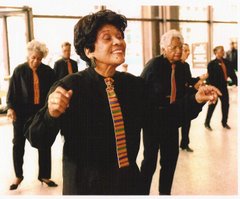
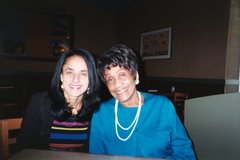

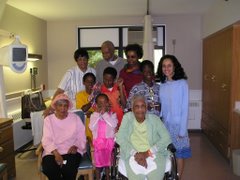

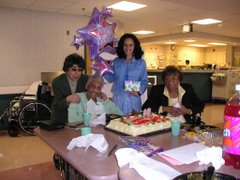
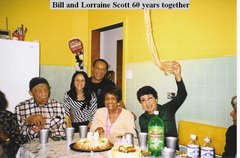

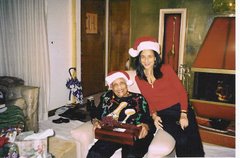
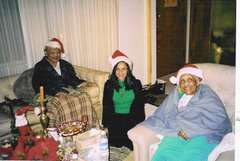
.jpg)